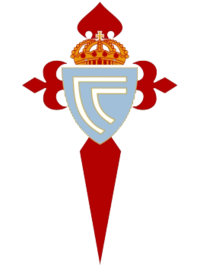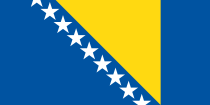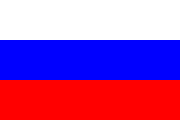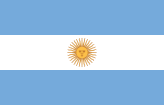Celta de Vigo
 |
|||
| Full name | Real Club Celta de Vigo, S.A.D. | ||
|---|---|---|---|
| Nickname(s) | Los Celestes (The Sky Blues) Los Celtiñas (The Lovely/Little Celts) |
||
| Founded | 1923 | ||
| Ground | Balaídos (Capacity: 32,500) |
||
| President | |||
| Head Coach | |||
| League | Segunda División | ||
| 2009-10 | Segunda División, 12th | ||
|
|||
Real Club Celta de Vigo, S.A.D (Spanish pronunciation: [reˈal ˈkluβ ˈθelta ðe ˈβiɣo]), known simply as Celta Vigo in English, is a Spanish football club from Vigo. It was founded on March 28, 1923 by the merger of Real Vigo Sporting and Real Fortuna Foot-ball Club. They currently play in Spain's Second Division.
Nicknamed Los Celestes (The Sky Blues), they play in sky blue shirts and white shorts. The club's home stadium is Balaídos, which seats 32,500 spectators[1].
Celta Vigo have played for many years in the Spanish first division, but have never been champions of the league or cup, despite having come close. Their best season was 1970—71, when they were not beaten at home and were known as the "giant-killers." They finished the season in sixth place (with the same number of points as Athletic Bilbao in fifth). This meant that the team qualified for the UEFA Cup for the next season. Unfortunately for them, they were knocked out by Aberdeen in the first round, and were unable to recover from a 2-0 loss at home.
Contents |
History
Foundation
R.C. Celta de Vigo was formed as a result of the ambition of Vigo's teams to achieve more at national level, where the Basque sides had been their bête noire in the Spanish Championship. The idea was to merge both teams to create a more powerful team at national level. The standard-bearer of this movement was Manuel de Castro "Handicap", a sports writer for the Faro de Vigo who, from 1915, started to write in his articles about the need for a Unitarian movement. The slogan of his movement was "Todo por y para Vigo" (All for and to Vigo), which eventually found support amongst the managers of Real Vigo Sporting and Real Club Fortuna de Vigo. It was backed unanimously when De Castro himself presented the motion at the assembly of the Royal Spanish Football Federation in Madrid, on 22 June 1923.
On 12 July, 1923, at the AGM's of Vigo and Fortuna held at the Odeon Theatre and in the Hotel Moderno, respectively, the merger was approved. Thus the "Team of Galicia" was born, as it was dubbed. In the last AGM of Fortuna and Vigo to approve the formation of a new club held on 10 August 1923, the members decided upon the team's name. Various names were suggested:
- Real Unión de Vigo
- Club Galicia
- Real Atlántic
- Breogán
- Real Club Olimpico
The last name was popular but they eventually decided on Real Club Celta, an ethnic race linked to Galicia (see Celts). The first president of Celta was Manuel Bárcena de Andrés, the Count of Torre Cedeira. At this AGM, the squad was also decided, which numbered 64 players in total, that included some notable players from both Fortuna and Vigo:
- Goalkeepers: Isidro, Lilo and Rubido
- Defenders: Otero, Pasarín, Juanito Clemente, Daniel y Kaíto
- Midfielders: Jacobo Torres, Balbino, Queralt, Hermida, Pombo, Cruces, Córdoba, Máximo y Bienvenido
- Forwards: Reigosa, Chiarroni, Posada, Polo, Correa, Gerardito, Ramón González, Caride, Pinilla, Salvador, Chicha, Miguelito y Casal.
- Manager: Francis Cuggy
EuroCelta
The late 1990s (1997—2001) saw the best results in Celta's history, in which they managed to consolidate themselves as a top-six league side, culminating in 2001-02, when they did not fall below sixth the whole season. They were dubbed EuroCelta by the Spanish press. The most important players were Alexander Mostovoi and Valery Karpin.
During this period they achieved a number of famous results in the UEFA Cup, beating Liverpool in home and away games (3-1 and 1-0) and thrashing Benfica (7-0) and Juventus (4-0).
Fall from Grace
Celta had a dramatic reversal of fortune in 2003—04. The previous season, they finished fourth in the league, putting them in the third qualifying round of the Champions League. Celta entered the group phase, and eventually reached the last 16 before being knocked out by Arsenal. However, their domestic form was disastrous, and they finished second to the last in La Liga, so they were relegated to the second level. They earned a return to the top flight at the first attempt, after finishing second in in 2004-05's Segunda.
In the 2005-06 season, they finished sixth earning a return once more to the UEFA Cup. They made it to the last 16 in that competition as well, before losing to Werder Bremen.
In the 2006—07 season, Celta finished in 18th position and were relegated to Segunda División. At the end of June 2007, Celta avoided going into administration. However, if an agreement was not put in place between the club and its creditors within three months, then courts would declare the liquidation of the club’s assets.
Colours & badge
|
|
| Celta Vigo's original home colours (1923). |
Celta Vigo's original team strip consisted of a red shirt, black shorts and blue socks. This was later changed at an unknown date to the traditional sky blue and white strip - representative of the Galician flag.
Like many other Galician clubs, such as Racing de Ferrol, the club badge is based on the red cross of Santiago (St. James). On top of the cross sits a sky blue shield with two letter Cs (Club Celta). In 1923 Celta became one of several Spanish football clubs that were granted patronage by the Spanish crown and thus entitled to use Real (Royal) in their names and the royal crown on their badge. This right was granted to Celta by Alfonso XIII and the club subsequently became known as Real Club Celta de Vigo. During the Spanish Second Republic (1931—1936) the title Real was removed from the club's name and the royal crown was taken off the club crest, however it was to return under the Spanish State.
Shirt sponsors and manufacturers
Celta Vigo have the longest running sponsorship deal in Spanish football. Going back to the 1985-86[2] season, Citroën, the biggest employer in Vigo, and in Galicia, has been their official shirt sponsor. Their business deal with kit supplier, Umbro, is also one of the longest running ones - Umbro's regional headquarters are based in nearby Redondela.
| Period | Kit manufacturer | Shirt partner |
|---|---|---|
| 1982-86 | Adidas | None |
| 1986-10 | Umbro | Citroën |
| 2010- | Li-Ning |
Club anthem
- Download in mp3 format:
Other popular songs sung by the celtistas are A Rianxeira, O Miudiño , and the Foliada Celeste.
Rivalry
Celta Vigo's biggest rivals are their northern neighbours Deportivo La Coruña. Matches between the two teams are known as the Galician derby.
| Teams | P | W | D | L | F | A |
|---|---|---|---|---|---|---|
| CELTA VIGO vs Deportivo | 64 | 24 | 16 | 24 | 82 | 91 |
Seasons
Recent seasons
-
Season Pos. Pl. W D L GS GA P Cup Europe Notes 1997/98 1D 6 38 17 9 12 54 47 60 1998/99 1D 5 38 17 13 8 69 41 64 UC quarter-final 1999/00 1D 7 38 15 8 15 45 43 53 UC quarter-final 2000/01 1D 6 38 16 11 11 51 49 59 Final UC quarter-final UI: winner 2001/02 1D 5 38 16 12 10 64 46 60 2nd round UC 2nd round 2002/03 1D 4 38 17 10 11 45 36 61 2nd round UC 3rd round 2003/04 1D 19 38 9 12 17 48 68 39 Quarter-final ECL last 16 relegated 2004/05 2D 2 42 22 10 10 55 38 76 2nd round promoted 2005/06 1D 6 38 20 4 14 45 33 64 Last 16 2006/07 1D 18 38 10 9 19 40 59 39 Round of 32 UC last 16 Relegated to 2ª División 2007/08 2D 16 42 13 13 16 56 55 52 2nd round 2008/09 2D 17 42 10 17 14 46 56 48 Round of 32 2009/10 2D 12 42 13 13 16 38 44 52 Quarter-final
Season to season
|
|
|
|
- 1 participation in Champions League
- 6 participations in UEFA Cup
- 1 participation in Intertoto Cup
- 46 seasons in La Liga
- 31 seasons in Segunda División
- 1 season in Segunda División B
- 1 season in Tercera División
Current squad
The numbers are established according to the official website:www.celtavigo.net and www.lfp.es
- As of 19 July 2010.
Note: Flags indicate national team as has been defined under FIFA eligibility rules. Players may hold more than one non-FIFA nationality.
|
|
Club Records
- Most league goals – 107, Hermidita (1945-55)
- Most Primera Division league goals –
- Most goals in a season –
- Most league appearances – 235, Mostovoi (1996-04)
- Current player with most league appearances –
- Biggest win and biggest home win – 10-1 (v. Gimnastic Tarragona, October 23, 1949)
- Biggest away win – 0-5 (v. Hercules, March 2, 1941)
- Biggest defeat and biggest away defeat – 10-0 (v. Athletic Bilbao, January 11, 1944)
- Biggest home defeat – 0-5 (v. Deportivo, January 3, 2004)
- Most Home points in a season -
- Most Away points in a season - 18 (2006-07)
- Record transfer fee paid - £7.4 million, Catanha from Málaga CF
- Record transfer fee received - £11 million, Michel Salgado to Real Madrid CF
Top goalscorers
 Hermidita 105
Hermidita 105 Mauro 69
Mauro 69 Gudelj 68
Gudelj 68 Pahiño 61
Pahiño 61 Mostovoi 55
Mostovoi 55 Roig 50
Roig 50 Atienza 49
Atienza 49 Del Pino 48
Del Pino 48 Olmedo 46
Olmedo 46 Torres 39
Torres 39
Internationals
Number of capped players (with Spain) - 18
- First Capped Player -
 Pasarín
Pasarín
- Debut Match -Italy 1-0 Spain (París, 25/05/1924)
- Last Capped Player -
 Ángel
Ángel
- Debut Match - Spain 0-1 Romania (Estadio Ramón de Carranza, Cádiz, 15/11/2006)
Club Officials
| President | |
| Vice Presidents | |
| Director of Football | |
| Director of Youth Teams | |
| Club Delegate | |
| Administrative Director | |
| Head of PR | |
| Head coach | |
| Assistant coach | |
| Fitness coaches | |
| Goalkeeping coach |
Celta Vigo B
Celta de Vigo B is Celta's youth team. It was founded in 1990 and plays in Group I of the Segunda División B.
Honours
Regional
- Campeonato de Galicia [3]
- Winners (6): 1923-24, 1924-25, 1925-26, 1929-30, 1931-32, 1933-34
- Campeonato Astur-Gallego
- Winners (1): 1934-35
- Copa Xunta de Galicia
- Winners (1): 2007, 2008
Domestic
- Copa del Rey
- Runners-up (3): 1948, 1994, 2001.
European
- UEFA Intertoto Cup
- Winners (1): 2000
Friendly
- Trofeo Ciudad de Vigo
- Winners (13):
- Trofeo Memorial Quinocho
- Winners (14): 1995, 1996, 1998, 1999, 2000, 2001, 2002, 2003, 2004, 2005, 2006, 2007, 2008, 2009
- Trofeo Teresa Herrera
- Winners (1): 1999
- Trofeo Xacobeo
- Winners (1): 1999
Individual
Pichichi
 1947-48 - Pahiño (23)
1947-48 - Pahiño (23)
Zamora
 1992-93 - Santiago Cañizares (30 Goals / 36 Games - Coefficient 0.83)
1992-93 - Santiago Cañizares (30 Goals / 36 Games - Coefficient 0.83) 2002-03 - Pablo Cavallero (27 Goals / 34 Games - Coefficient 0.79)
2002-03 - Pablo Cavallero (27 Goals / 34 Games - Coefficient 0.79) 2005-06 - José Manuel Pinto (28 Goals / 36 Games - Coefficient 0.78)
2005-06 - José Manuel Pinto (28 Goals / 36 Games - Coefficient 0.78)
Further reading
- González Villar, Celso (in Galician). Albores do fútbol Vigues.
- Cros, Jaime (1973) (in Spanish). El Celta y la Liga. Murcia: APANDA de Artes Gráficas, S.A.. ISBN 8460558517.
- Cros, Jaime (1974) (in Spanish). Celta 74.
- Álvarez, Eugenio (2004) (in Spanish). A historia do Celta (1992-2004). Vigo. pp. 272.
- Ball, Phil (2001). "Raining Champions". Morbo: The Story of Spanish Football. Kings Lynn, England: WSC Books. pp. 165–181. ISBN 0954013468.
References
Notes
- 1.^ Carlos Mouriño is the majority shareholder, with 35%, and as such is the club president.
External links
- Official
- Official website (Spanish)
- Statistical
- Celta Vigo at the Liga de Fútbol Profesional official website (Spanish)
- Futbolme.com profile
- Historical
- www.historiadoceltadevigo.net (Galician)
- News
- Celta Vigo news from MARCA (Spanish)
|
||||||||||||||||||||
|
|||||